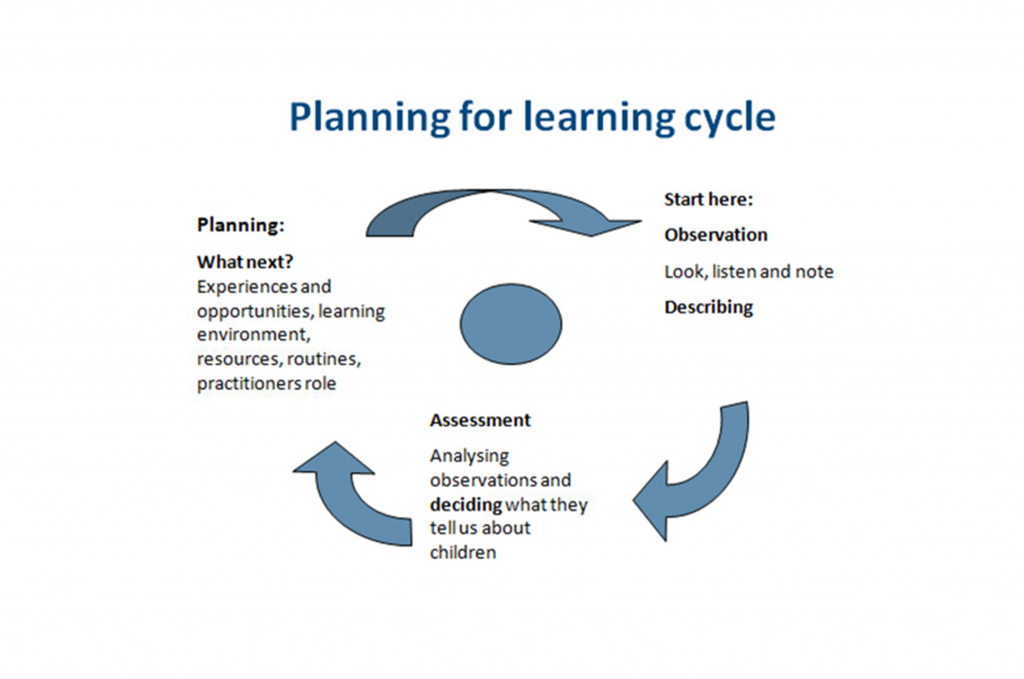So how do practitioners use the Early Years Foundation Stage in daily practice to observe, plan for and assess the children’s development?
Understanding a child’s individual needs is achieved by using the observation, assessment and planning cycle from the EYFS Early Years Settings use this cycle to ensure the individual needs of children are met. Early Years Practitioners work alongside the EYFS to observe, assess and plan for the learning of the children in the setting. Daily observations and photos of a child are taken enabling the practitioner to gain a better understanding of the child’s individuality.
Observations play a vital part in monitoring children’s development and can be used in a variety of ways. Learning Journeys are kept for each child and contain that child’s biggest achievements; these are personal to the child and provide an accurate reading of children’s development.
Learning journeys are completed on a monthly basis and continue through the setting as the child moves room. In addition to observations and photos, the learning journeys also contain an “all about me” sheet. This is initially completed by parents to aid practitioners to learn about the child, and then completed by the key worker each time the child moves room. This way of sharing information helps practitioners to understand the child better, thus able to plan for and assess them beneficially. Learning Journeys are linked to the Development Matters in the EYFS and each observation or photo is provided with a quote from the EYFS. This helps the practitioner to categorise the child’s action into a learning area, and assess the children’s development in that area.

